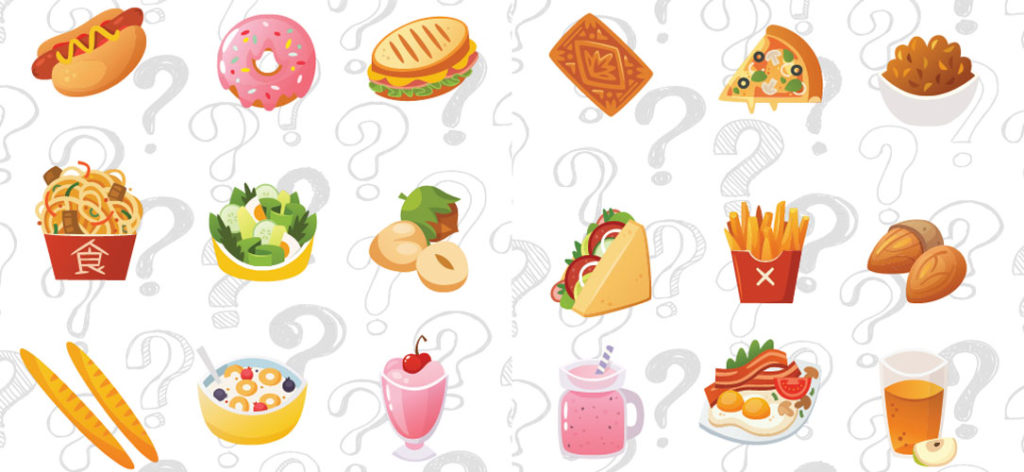For many families, September is about kids getting back to school, playing fall sports or starting other new activities. This means new teachers, coaches and friends. A family dealing with a child’s food allergies has additional anxiety about all the changes.
One in 13 children in the United States has a food allergy; 40 percent of allergic kids have reactions to more than one food. Every child has likely been exposed to the problem since nearly every class at school has someone with an allergy.
I am now 16, and I was diagnosed with severe food allergies when I was 3 months old. I’m severely allergic to dairy, peanuts, tree nuts and raw eggs. While most people understand a peanut allergy, I meet people all the time who confuse my dairy allergy with an intolerance. If I drink milk or take a scoop of dairy yogurt, my throat will close up. Peanuts are just one of the top eight allergens that can lead to anaphylactic shock, which can be fatal.
There is no cure for food allergies although there are some promising treatments. Strict avoidance is the only way to prevent an allergic reaction. The only way to treat an anaphylactic reaction is with an injected dose of epinephrine as soon as possible. People with allergies must carry this medication with them at all times.
Living with food allergies is challenging because food is a part of our daily life and especially our social lives. For myself, I try to strike a balance between living cautiously and living a full “normal” life. It’s important for everyone to realize that people with food allergies aren’t trying to make life difficult, they are trying to stay alive. If you’re bummed you aren’t being served peanuts on your flight or that your child can’t take a peanut butter sandwich to school, try to think about the parent’s fear that their child will stop breathing 30,000 feet in the air or that their 5-year-old will take a bite of that sandwich at school. It’s not an easy way to live. A little understanding goes a long way.
Here are some tips everyone can use to keep us all safe and happy.
Elementary school age
If your child has a friend with an allergy, ask questions. Chances are your child is already protective of their friend. My classmates were always supportive of me. Don’t be afraid to invite the food allergic child over! Talk with the other parent. Likewise, if you are the parent of a child with an allergy, ask what food will be served at the play date or party. Offer to bring safe snacks for your child. This is what my mom always did. She also volunteered to provide the food for class parties. This takes the stress off everyone.
Most important is for everyone around the child with the allergy to know what to do in case of a reaction. (Remember coaches and bus drivers, too.) Food is everywhere. Talk to your child about getting help from a teacher if they think their food allergic friend is in trouble.
This age is a good time to start planting the seeds of empowerment in your child with allergies. My parents worked with me on reading food labels, ordering food in a restaurant and learning how to cook. We also talked about trust: Even if people have good intentions in their kitchens, I cannot eat a food unless it is clearly labeled. Don’t take it personally if I turn down your cookies at church—I’m politely protecting myself.
Middle and high school
As I got older, managing my food allergies changed. I began to do more activities on my own and started carrying my auto-injector myself. The teen years are the most dangerous for kids with food allergies. This is when the most fatal reactions occur. Teens don’t want to draw attention to themselves so they might not talk about their allergies or carry their medication. They are more likely to deny symptoms, allowing a reaction to get out of control.
At this age, help your teen find a carrier for the medication that they will use. Encourage them to wear some type of medical identification. Discuss social scenarios with your teen, offer to host social activities at your home and encourage your teen to be open with friends.
One of the most important things I’ve learned is to not fear the auto-injector. Many people are scared to use it, but the golden rule is: epi first, epi fast. My allergist used to tell me: “No one dies from the Epi-Pen.”
At any age, it’s important to communicate and be understanding about food allergies. My family has been fortunate to work with kind and helpful teachers, administrators, chefs, camp directors and parents along the way. I also have great friends who know about my allergies.
It’s been helpful to me to be a part of the food allergy community. For example, the FARE (Food Allergy Research & Education) website (www.foodallergy.org) has great information.
Kids with food allergies can suffer from anxiety, so talking with a school or private counselor can also help.
It is unfortunate that allergies are on the rise. However, through the years I have found more resources available and more options for safe, well-labeled food. Still, we all hear about tragedies that occur. One food allergy death is too many. By working together as a community, we can keep food allergic kids safe.




